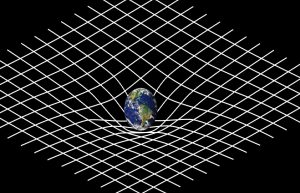S. Almost every Buddhist school recognizes Madhyamika as important teaching, but it is almost always subordinate to the direct teaching of the Buddha or the teacher you study with. Every Buddhist school is also in debate with other Buddhist schools. Theravada/Mahayana, Vajrayana/Dzogchen, Dzogchen/Mahamudra, Nichiren/Zen, etc. It is mostly academics that engage in these debates which never solve a thing. A real teacher will never involve you in comparative mind. They always show you the recognition of your nature which is never seen as a ‘thing’ and never separate from any ‘thing’. They leave philosophy behind. This is not to say that philosophy cannot inspire.
…
The tendency in all of us to want to believe in something lasting, all-knowing, and final, must be regarded in the same light as our learned beliefs that we acquire from our conditioning and cultures. The idea of racism, that one color, nationality, or faith is superior to another, for example, is embedded in all cultures. Through our ordinary minds, we can work this out to the point of disbelief, or even disappearance from our thoughts and feelings that will allow us to treat each other with respect and dignity.
In the same fashion, we can look at ideas and concepts of philosophical and religious meaning and believe that these hold truths and even ‘take refuge’ in them. These conditioned ideas get reinforced through group belief, authoritative declarations, and our grasping desire to find some lasting truth in something that we can experience or know. We never really grasp what these teachings are talking about except in our conditioned mind, our ability to retain and repeat, and believe. Continue reading

 Hardly does a minute go by when a student of Advaita does not hear an analogy. The subject being so abstruse and abstract, the teacher ostensibly to make things easy to understand (सुख बोधाय), resorts to the method of using an “analogy.” Much like in Theoretical Physics and Quantum Physics, the concepts in Advaita too are usually counterintuitive and metaphor is a powerful tool to help drive home a difficult idea. The danger in using the metaphor is that it, more often than not, lulls the student with a sense as though s/he “got” it (the Oneness of All That-IS). Perhaps because of that, it is not seldom that we find even an advanced student of Advaita being tempted to extend a metaphor beyond the intended point and make his/her own inferences from such a wrong projection. (I am frequently asked questions on ‘reflected Consciousness,’ ‘Witness-Consciousness’ etc. based on such improper extensions).
Hardly does a minute go by when a student of Advaita does not hear an analogy. The subject being so abstruse and abstract, the teacher ostensibly to make things easy to understand (सुख बोधाय), resorts to the method of using an “analogy.” Much like in Theoretical Physics and Quantum Physics, the concepts in Advaita too are usually counterintuitive and metaphor is a powerful tool to help drive home a difficult idea. The danger in using the metaphor is that it, more often than not, lulls the student with a sense as though s/he “got” it (the Oneness of All That-IS). Perhaps because of that, it is not seldom that we find even an advanced student of Advaita being tempted to extend a metaphor beyond the intended point and make his/her own inferences from such a wrong projection. (I am frequently asked questions on ‘reflected Consciousness,’ ‘Witness-Consciousness’ etc. based on such improper extensions).